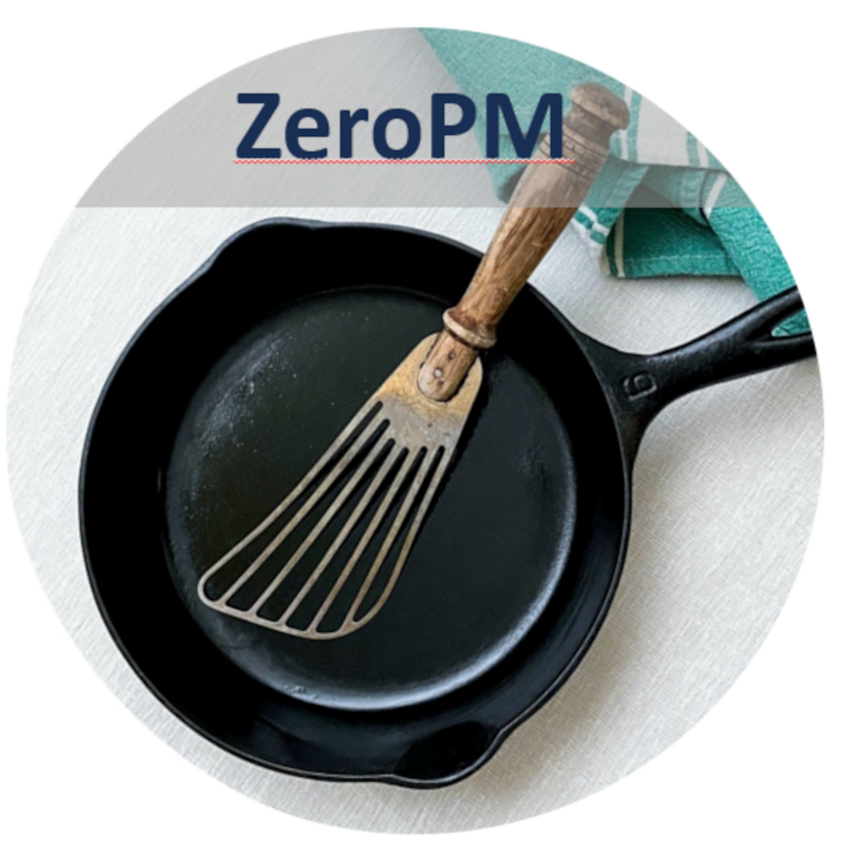
Protecting water from contamination with persistent, mobile substances is the goal of the Zero pollution of Persistent, Mobile substances (ZeroPM) project. The consortium of 15 institutions from the university, research and technology sectors began work on this in October 2021. September 2026, the project is scheduled to be completed.
Persistent mobile substances - called PM for short - and PFAS - a group of industrial chemicals comprising thousands of substances, have been used for a long time in a wide variety of industrial and household applications. There is concern not just because these substances have a high persistence and longevity - they accumulate in the ocean and in groundwater – but also because evidence of adverse human health effects is accumulating. They can reach humans via the food chain and remain in the body for a long time.
Project goals
- Better understand how risks and benefits are perceived by stakeholders involved - i. e. Industry, regulators, and public perceptions.
- Better predict what the readiness for and responses to change would be.
- Identify products and applications that are important enough that we accept PM chemicals in their manufacture (“essential use”).
- Better understand the impact of labels designed according to psychological guidelines on willingness to buy ... with the goal of eventually arriving at "best practice communication", the best possible labeling with warnings.
- The central task of Sabine Pahl, Mathew White and new post-doc Ellise Suffil in the project is to bring in an environmental psychology perspective, working on risk perception, risk communication and behaviour change.
ZeroPM will be the pathfinding project enabling the ambitions of the European Union's Green Deal strategy of zero pollution of persistent and mobile substances to become an on-the-ground reality. ZeroPM will interlink and synergize three strategies to protect the environment and human health from persistent, mobile substances:
Prevent, Prioritize and Remove.
- To Prevent, ZeroPM will develop scientific, policy and market tools for the substitution and mitigation of prioritized persistent and mobile substances to safer and sustainable alternatives
- To Prioritize, ZeroPM will identify the groups of persistent and mobile substances requiring the most urgency to act upon; considering the sustainability aspects of removal.
- To Remove, ZeroPM will explore real-word scale remediation solutions, and find the limits of their sustainability.
ZeroPM will integrate the Prevent, Prioritize and Remove strategies through an evidence-based multilevel framework. The framework will guide policy, technological and market incentives to minimize use, emissions and pollution of entire groups of persistent and mobile substances. Through this systemic approach to chemical pollution, the EU will be better able to avoid regrettable substitution - substituting one problematic chemical for another -and regrettable remediation (investing in remediation efforts more that cause more damage than the substance itself).
Methods
The methods used during the project include a quantitative survey in Sweden, Germany and the Netherlands, but also interviews and surveys with experts and non-experts. A number of experiments will investigate different communications and labeling.
Financing
ZeroPM is financed by EU research framework program "Horizon 2020" under the Societal Challenges Programme (H2020-EU.3.5. - SOCIETAL CHALLENGES - Climate action, Environment, Resource Efficiency and Raw Materials), which includes a commitment to a zero-pollution ambition for a toxic-free environment (https://cordis.europa.eu/programme/id/H2020_LC-GD-8-1-2020/en). The research volume for ZeroPM amount to about € 11.6 million, of which about € 600,000 is for the environmental psychology group at University of Vienna.
Collaborating on innovative communications will be part of our tasks, see e.g. here a clip developed by ChemSec, one of the project partners.
Involved team members




